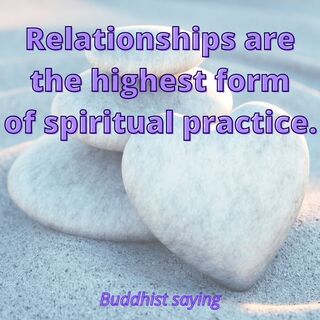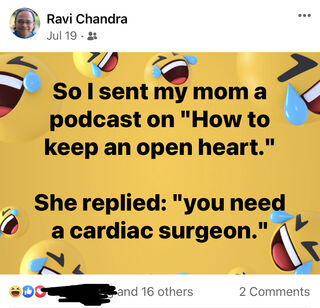Empathy
Eight Types of Humility Needed for Cognitive Clarity
Humility helps cultivate empathy and relatedness. Without these, where are we?
Posted September 8, 2022 Reviewed by Kaja Perina
Humility is lauded as a virtue in most world cultures and wisdom traditions. But I’m wary of those who counsel deferential or pious humility to contain and admonish those who have strong opinions and perspectives. For example, the stereotype of humble Asians and Asian Americans acts to silence important intrapsychic as well as interpersonal messages that are quite critical to our time of change and distress. To be bold and not “humble” per se risks being called “arrogant” or “difficult to deal with.” I think it’s possible to be both brave and humble, but it requires constant internal and interpersonal work, and risks rupturing or distressing relationships.

Maintaining strong perspectives, a strong sense of self, and humility – with a sense of humor – is helpful on many levels. The Greater Good Science Center reports “Psychologists have recently linked intellectual humility to a host of benefits: showing more persistence in the face of failure, holding less polarized beliefs and attitudes, and being received as warm and friendly by others.” (See references.)
As a psychiatrist, I think humility springs from deep awareness that we are all only ultimately aware of the world through our own eyes, experiences, and insights. No matter how knowledgeable or skillful I might be, there’s always more to learn. There are always people with different perspectives, life experiences, knowledge and skills. There are always different people to cherish, be present with, and learn from.
As a psychiatrist and human being, I also carry a deep sense of responsibility for others’ welfare. That keeps me grounded even when I express myself and my concerns for marginalized peoples quite strongly. A sense of responsibility and allyship fuels both bravery and humility. I’m not afraid of speaking truth to power, and I value the right to be unabashed and strong in my expressions as I deem necessary. This is all carried by a deep commitment to listening to and understanding others as well. We are all works-in-progress. I really hope I don’t take myself too seriously, at least not all of the time. I do take a sense of humor seriously, and I have been known to take people’s sense of seriousness humorously.
Here are several forms of humility:
Cultural humility
We all have biases based on our cultural experiences and identities. Our experiences might give us only partial understandings of people from other cultures, and all too often, we might carry stereotyped assumptions about other cultures which will inevitably cause harm. We all live in perspective bubbles, though these bubbles are now more porous than ever. (See my article in references, "Is 'White Privilege' the Best Way to Talk About Racism?")
Familial (or intergenerational) humility
It would do the world a lot of good if parents (and older people generally) would be humble in the face of their children’s perspectives in life. They are literally seeing a whole new ballgame. Similarly, older folks have often accumulated wisdom and experience, and younger people could afford to be humble as well when hearing them out. Perhaps everyone in the family, older and younger, could afford to be more humble in the face of uncertainty and the need to negotiate relationship in times of distress. Humility helps us cultivate empathy and relatedness. Without these, where are we?
Intellectual humility (particularly around opinion)
A study published in the Journal of Personality Assessment proposed two key dimensions of intellectual humility: self-directed vs. other-directed and internal vs. expressed.
These can be mapped out into a 2x2 grid with these four domains:
- Internal and self-directed intellectual humility: requires inquiring within and questioning yourself and your assumptions.
- Internal and other-directed intellectual humility: requires asking yourself whether you can understand and relate to others’ beliefs and perspectives.
- Expressed and self-directed intellectual humility: requires behaving in ways consistent with your internal sense of humility.
- Expressed and other-directed intellectual humility: requires relating to others in good faith. I think cultivating a sense of common humanity, and feeding common humanity with our actions, despite differences of opinion is really important here.
The therapeutic adages “you can be right or related” and “you can be right or happy” are helpful here. Also, the folk Buddhist saying, “the world is divided into those who are right” is a helpful reminder of how we can get locked into fixed opinions and biases which drive us apart and polarize us.
Humility of knowledge
As much as any of us might have known or learned, there’s always more to learn and understand. There are also obviously different perspectives on the same body of knowledge or even the same event. I think it’s important for those in the dominant culture to be humble when trying to relate to those with lived experience and close-to-the-ground knowledge in the areas in question.
Humility of skill
No matter how skillful we might be, it’s good to stay humble in the face of new situations, the potential for errors, and the inevitability of change. Humility can help us stay grounded and mindful in the situation for which our skills are required.
Humility of wisdom
I think we’d all like to eventually be respected and appreciated for our wisdom, accomplishments, skill, talent or knowledge accumulated through life experience and lifelong learning and growth. However, as Socrates said, “the only true wisdom is in knowing you know nothing.” Holding a position of power and privilege predisposes to erosions of empathy, relatedness, and wisdom, as I’ll discuss in my next post. Humility, holding true to the bigger picture, and deep relationship to a wide variety of people guard against these erosions and corruptions.
Humility of Awe
T.H. White wrote in The Once and Future King, “The fate of this man or that man was less than a drop, although it was a sparkling one, in the great blue motion of the sunlit sea.” Dacher Keltner writes, " Awe is the feeling of being in the presence of something vast that transcends your understanding of the world.” He goes on to highlight the evolutionary benefits of awe (which is linked to humility): “awe binds us to social collectives and enables us to act in more collaborative ways that enable strong groups, thus improving our odds for survival.”
When we carry humility into new situations, new groups, new experiences and relationships, we open ourselves to appreciation, awe, and transcendence. The whole is truly greater than the sum of all parts.
It's nice to have the Awesome a la carte special when it feels like we’ve been eating at the All You Can Eat Awful Buffet! Which brings us to…
Humility in the face of suffering
Suffering is a vast and painful subject. Research has shown that we are often pulled to help “the identified life,” but we are overwhelmed and shut down when faced with large scale suffering and catastrophe. How do we keep an open heart?

Recently, I sent my mother a podcast interview with psychologist Eve Ekman on this very question, “How to sustain an open heart.” She replied, “you need a cardiac surgeon!” Here’s a woman who knows a thing or two about life, lol!
I think cultivating presence, humility and humor in the face of suffering and potential suffering beyond the scope of our current capacity to deal with keeps us honest, open, ready, and alive.
References
For further reading
Sgambati T. How Do You Know if You’re Actually Humble? (with a link to a quiz assessing intellectual humility) Greater Good Science Center, July 13, 2022
Keltner D. Why Do We Feel Awe? Greater Good Science Center, May 10, 2016
Ekman E, Simon T. How do we sustain an open heart? Sounds True, June 21, 2022
Chandra R. Is “White Privilege” the Best Way to Talk About Racism? Psychology Today, June 18, 2020
Carey B. Be Humble, and Proudly, Psychologists Say. NY Times, October 21, 2019
Coda: To keep you grounded with a sense of humor, watch this music video from 2016’s Popstar: Never Stop Popping starring Andy Samberg. You’ll laugh as he brags about how humble he is! The related video “Incredible Thoughts” should be required viewing for all politicians, celebrities, and all of us who are prone to thinking too highly of ourselves at the expense of the greater good!




